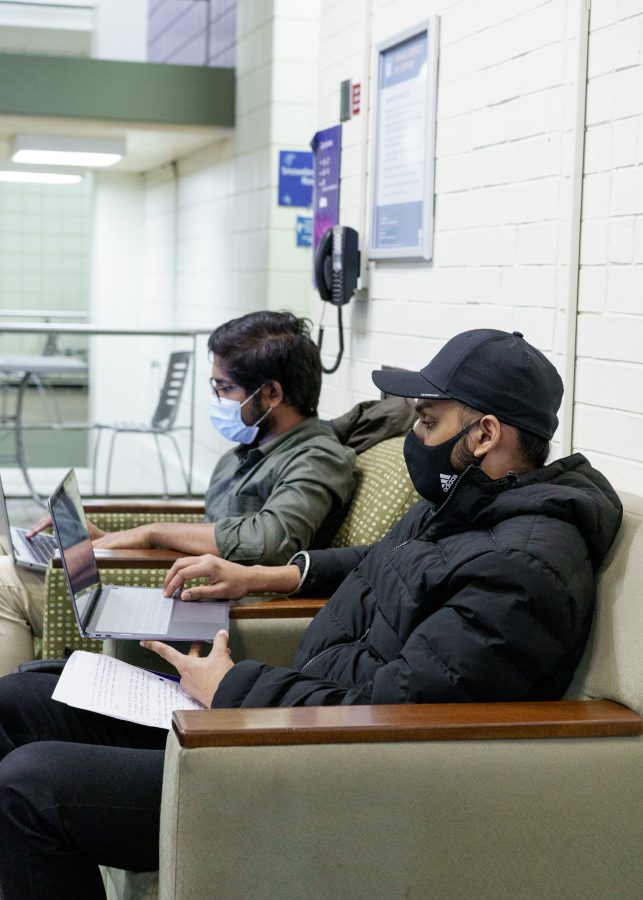On Monday, March 28, the university shifted to an optional indoor mask policy. This came after the CDC announced that mask policies could be loosened for vaccinated individuals in Massachusetts. The City of Boston lifted its indoor mask mandate, and the university followed suit. Masks are still required on campus shuttles and in University Health Services, and for anyone who is not vaccinated or boosted.
The university said in an email that they “will continue to encourage masking for any individual based on their own personal situation or comfort level.” They also added that they will have masks available for students who need them. The free COVID-19 testing offered by University Health Services will continue.
This news was met with mixed reviews. Many students are thrilled about being able to finally take off their masks after two years of wearing them. But some students and faculty members are afraid that it will result in a spike of COVID-19 cases. Faculty were informed by the university administrators that they are not allowed to make any mask mandates in their classrooms that were stricter than the mandates set by the university. Therefore, professors cannot require that masks be worn in their classrooms.
I believe that the university made this decision preemptively, and they are not considering the seriousness of the situation. I am also very surprised that they made this decision; I fully expected the mask mandate to be in place until the end of the semester.
A new variant of COVID-19, which has been labeled as BA.2 (an Omicron subvariant), caused a surge of cases in Europe just a few weeks ago. Now, BA.2 is the dominant version of the virus in the United States, where it is accounting for over half the reported cases according to the CDC. Vaccines do protect against this variant. BA.2 does not cause more severe illness than Omicron or the Delta variant, but it is more transmissible. With so many places loosening their COVID-19 guidelines and restrictions, scientists are worried that there could be another surge.
On our own campus, a report done by the Anthropology department suggested that the Wheatley building has incredibly poor ventilation, which increases contamination. By removing masks, students in this building have an even higher chance of catching COVID-19. As a student who spends a lot of time in Wheatley, I feel very unsafe knowing that students are not required to be masked in a building with bad ventilation.
While there is no reported data on how many students are continuing to wear their masks, my unofficial observations suggest that about half the student body is remaining masked, or even double masked. I am a bit surprised at the number of students continuing to wear their masks, although I do expect this number to shrink as time goes on.
According to University Health Services, there were 19 confirmed positive cases of COVID-19 on campus from March 21 to March 27. According to the New York Times, the Commonwealth of Massachusetts had a 51 percent increase in cases over the last two weeks. There have been decreases in hospitalizations, ICU admittances and overall deaths. I am interested to see if cases will spike in the coming weeks, on our campus and in the city, due to the mask mandates being lifted.
It is unknown if the lifting of the mask mandate on campus, and in the city, will cause a surge of COVID-19 cases, but many people on the UMass Boston campus are concerned. Some professors have emailed their students asking and encouraging them to continue wearing their masks.
Students and staff who are worried about being exposed to the virus should continue to wear their masks and get tested. KN95 masks and free at-home antigen tests are available in multiple locations, including the UHS testing clinic in the Alumni Lounge and the Campus Center Information Desk.
Should the mask mandate have been lifted?
By Adrienne-Harris-Fried
|
April 1, 2022
UMass Boston students Madhu Makireddy and Sandeep Singh (L-R) study while wearing masks in Wheatley Hall on Thursday, March 30, 2022.
About the Writer
Adrienne-Harris-Fried, Managing Editor

